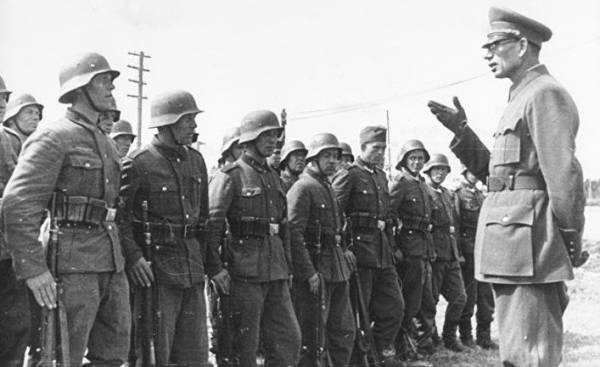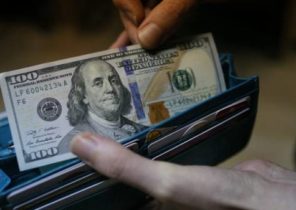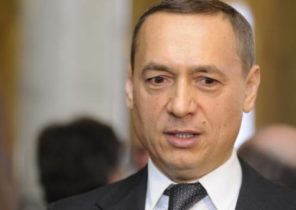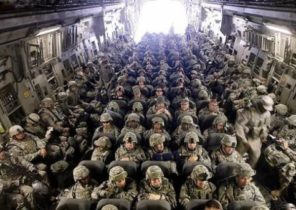
The Russian language is a synonym for “traitor” — “Vlasov”.
Generations of Russians were brought up in an atmosphere of hatred for the man who in the popular mind dropped to the absolute bottom. Andrey Vlasov: on the one hand, awarded the highest awards of “hero of Moscow”, which in the course of the battle for Moscow in 1941 became the first General of the red army, who managed to force the retreat of the German divisions.
On the other hand, Vlasov — despicable General in 1942, fell into German captivity and then joined the sworn enemy to overthrow Stalin. How could this happen?
A simple peasant son quickly managed to make a career, having risen from private soldier to commander. It was a long time member of the CPSU(b), and after the triumph in the battle of Moscow was considered a favorite of Stalin.
Lessons from the battle on the Volkhov
However, only a few months after that, in the battle on the Volkhov river, to the East the siege of Leningrad, there was a fateful event, as it was called then the General himself. Because the Soviet offensive, seeking to break the blockade of Leningrad, in the spring of 1942 came to a halt, and the 2nd shock army of General Vlasov for some time was in the German environment. By his own admission, a few days spent in the boiler, it was clear to him senseless stubbornness of Stalin, which cost the lives of tens of thousands of soldiers. A waiver he gave too late.
Vlasov could get out of the environment by air, but he refused. According to him, until he was ten days hiding from the Germans, he realized that “the main enemy of the Russian people” was Stalin. Soon after Vlasov began to dream of new Russia, free from the Bolsheviks.
Thus, on the Volkhov began a new life of the red General. In July 1942 he was taken prisoner by the Germans, and at the end of the same year was transferred to the “Russian leadership” of the Wehrmacht and decided on the collaboration with the Nazis.
Their motives he described in a letter: Russian people “received nothing from the fact that fought during the Civil war.” Him with my own eyes have observed, “as millions of people have disappeared, been arrested, and all the Russian trample trampled with their feet.” “In the country there was not one family that did not suffer from Stalin’s terror”.
The abolition of forced labor, the dissolution of collective farms, refusal of terror, the return of civil rights — the struggle for a “bright future” for the country Vlasov saw the only chance of success in cooperation with Germany. However, he believed that he signed a Pact with Germany and not with national socialists.
Hitler on the Vlasov: “He is nothing!”
“There are German officers who want to help the Russian people,” — said Vlasov, bearing in mind the appalling conditions in which there were Russian prisoners of war in German camps”, They assured me that would help me. I decided to go this route on their side”.
After talking with the captain, Baltic German Wilfried Shtrik-Strikfeldt (Wilfried Strik-Strikfeldt), commander of the Eastern parts of the so-called “foreign troops”, he accepted the proposal to establish an anti-Bolshevik army. Even then as a volunteer in the German part had served about half a million former red army; in each part there were about a dozen naked Russian volunteers.
However, Vlasov, almost two-meter giant with sharp features, wore thick glasses, refused to wear German uniforms, being a patriot of Russia. Contrary to the assertions of his enemies in the Gestapo and the propaganda Ministry, he was not an anti-Semite. There the documents stated: “the Vlasov movement is not national socialist. It is important that there is no struggle with the Jews — the Jewish question as such does not recognized”.
High-ranking German military felt sympathy for Vlasov, and Claus Schenk Graf von Stauffenberg (Claus Schenk Graf von Stauffenberg), and later made an unsuccessful attempt on Hitler, saw in him a “Russian de Gaulle led the free alternative of the government and the anti-Bolshevik liberation army”. Himmler believed Vlasov “pig”, and Goebbels, by contrast, was impressed and described in his diaries the “energetic military leader” as “extremely intelligent” person.
However, the German fronts had to collapse, to Vlasov and his German curators have been heard by the highest Nazi leadership. “They come to us only when you lose your stupid aplomb and begin to fight for their lives,” predicted Vlasov back in the fall of 1943.
“Save The Fatherland”
14 November 1944 this item has been made. Finally, the General had the opportunity to declare the creation of a “Committee for the liberation of peoples of Russia” “Slavic land” (in Prague), in the presence of diplomats and senior politicians. The Committee received a status independent of the Russian government: “in Order to save the Fatherland,” said Vlasov, “we agreed to establish with Germany the honest Union.” In January 1945, his “Russian liberation army” (ROA) was declared in Germany the allied army.
The gray uniform of the ROA fighters wore the emblem in the form of a blue St. Andrew’s cross on a white background. They fought on the ground, and together with the Luftwaffe Goering. 13 April 1945, ROA participated in the successful attack on the bridgehead of the red army on the Oder.
However, the war was impossible to win — it is understood and Vlasov; he foresaw his defeat in early 1945: “If we lose this war — and it is highly likely all my friends will declare traitors, mercenaries of fascism and executioners of their own people”.
12 may 1945, four days after Germany’s surrender, this prediction started to come true: on the way back from talks with an American commander of Soviet soldiers stopped the car, which was Vlasov. American convoy offered no resistance. In accordance with repatriation agreements reached with Stalin, Vlasov was given to the Soviet Union — along with millions of Russians who were in other Western countries.
Death on the gallows
The dream of the fugitive General of the new Russia ended a year later on the gallows. On 2 August 1946, Vlasov, along with nine other generals were executed within the walls of the infamous NKVD prison in the Lubyanka. The same fate befell another 125 thousand soldiers of his army, about which some war veterans told Belarusian writer, Nobel prize winner, Svetlana Alexievich for her book “Time second hand”. “Young men, our peers… the tankers used to tie them to their tanks, start the engines… and went home in different directions… They were torn to pieces… Traitors! But were they really traitors?”
As he told the veterans, one of the captured soldiers of Vlasov wanted to avenge his father, shot by the NKVD. The other didn’t want to die in a German camp. Alexander Solzhenitsyn, who, as a dissident, he met with Vlasov in the camp, noted in his book “the GULAG Archipelago”: “it is Possible, it is worth considering who is more to blame for the fact that people together with the worst enemy and directed the weapon against the Fatherland: the young guys or the country?”
Now “homeland” has created a myth that revises the past and replacing the name of the hated General from the history books. And for the victory at Moscow in 1941 in Russian films not praised Vlasov, and 28 soldiers, led by major General Ivan Panfilov. The premiere of the film at the end of 2016 visited personally by President Vladimir Putin.
The fact that the popular story about the soldiers of the martyrs is pure fiction, does not bother anyone. Although the Soviet military Prosecutor’s office found it in 1948. In 2015, the information was confirmed — that caused a public outcry. And about General Vlasov, who once praised — he is buried in a common grave at the prison — no one else remembers.







